Jailed Without Charge: Nael Barghouti, 64-year-old Palestinian in jail for 42 years
By Humaira Ahad
“When a nation seeks its freedom, it will always prevail. The occupation will never succeed in planting defeat in our hearts, because we summon our courage from our faith in God and the legacies of all the nations that sought and achieved their freedom and dignity.”
This is an excerpt from a letter Nael Saleh al-Barghouti wrote from an Israeli jail, which Palestinian journalist and author Ramzy Baroud reproduced in his 2019 book ‘These Chains Will Be Broken: Palestinian Stories of Struggle and Defiance in Israeli Prisons' in a chapter titled ‘Love Behind Bars’.
Barghouti is the longest-serving Palestinian abductee (prisoner), who has been languishing in Israeli jails for more than 42 years now, arrested for the first time in 1978 for resisting the Israeli occupation.
He has been subjected to the worst forms of torture behind bars and suffers from several ailments.
The 64-year-old, who hails from the village of Kobar in the occupied Ramallah, was even denied the right to attend his father’s funeral in 2004 by the Israeli authorities
His mother, Farha, a writer and poetess, kept waiting for her incarcerated son and died without seeing him the last time and without bidding him the last farewell.
Arrested for refusing to accept the illegal Israeli occupation and mustering the courage to resist it, Barghouti, now 66, has spent 42 years in different Israeli jails.
In 2009, he broke the Guinness World Record for the world’s longest-serving political prisoner.
In 1978, a student activist, Barghouti had to undergo a long and harsh interrogation. He was sentenced to 112 years in prison for allegedly killing an Israeli occupation officer north of occupied Ramallah.
His brother, Omar, and his cousin Fakhri were also arrested by the regime. Omar spent 26 years in prison before he was allowed to walk free but continued to be harassed.
Barghouthi’s only sister, Hanan, was 12 years old when he was arrested for the first time. Now she is a grandmother and he is still languishing behind bars, without any legal basis.
Barghouti was released in a prisoner exchange deal between the Palestinian resistance and the Israeli regime in 2011. After his release from jail, he married Iman Nafi, who herself had spent 10 years in different Israeli jails.
“As a freed prisoner, I consider my marriage to another freed prisoner a victory against the prison system, a challenge to those who deprived us of our freedom, and a triumph of the spirit of faith and hope,” Barghouti said after his marriage to Nafi in 2011.
However, the freedom did not last long. In June 2014, the occupation authorities reneged on the terms of the exchange deal and re-arrested Barghouti. He was sentenced to 30 months in prison but after completing his term, they reinstated his original life plus 18 years sentence.
"I was so happy to be married to Nael. He, too, was thrilled. We both found love, and our life, for once, seemed to get back on track. Great festivities ensued. It was major news all over Palestine," Nafi is quoted as saying in Baroud's book.
“We lived together for 31 months before the Israeli army came to our house and re-arrested him. They gave no reason whatsoever as to why they reneged on the prisoner exchange agreement."
Nafi said she thinks of him, the suffering and the life that awaits them "every hour of every day."
Barghouti’s attorney filed a petition in an Israeli regime court four years ago demanding the release of his client based on the terms of the exchange agreement between the Palestinian resistance and the Israeli occupation which stated that freed prisoners cannot be re-arrested.
Last December, an Israeli military court rejected an appeal to release Barghouti and upheld the previous judgment, under the pretext of having a “secret file” on him.
"I will be here waiting for him," Nafi said, exuding incredible hope and optimism.
There were about 5,200 Palestinians in Israeli prisons before the Al Aqsa Storm operation. The number has now risen to more than 10,000 people as per the statistics given by Palestinian officials.
VIDEO | Press TV's news headlines
Hamas: Israel escalating ceasefire violations in Gaza
Venezuela's government declares unwavering unity behind Maduro
VIDEO | Global outcry over Venezuela president abduction
Iran keeps wheat import subsidies despite cutting other food supports
Venezuelan military stands with acting president after US kidnapping of Maduro
VIDEO | Press TV's news headlines
VIDEO | Protesters in Toronto slam US kidnapping of Venezuelan president


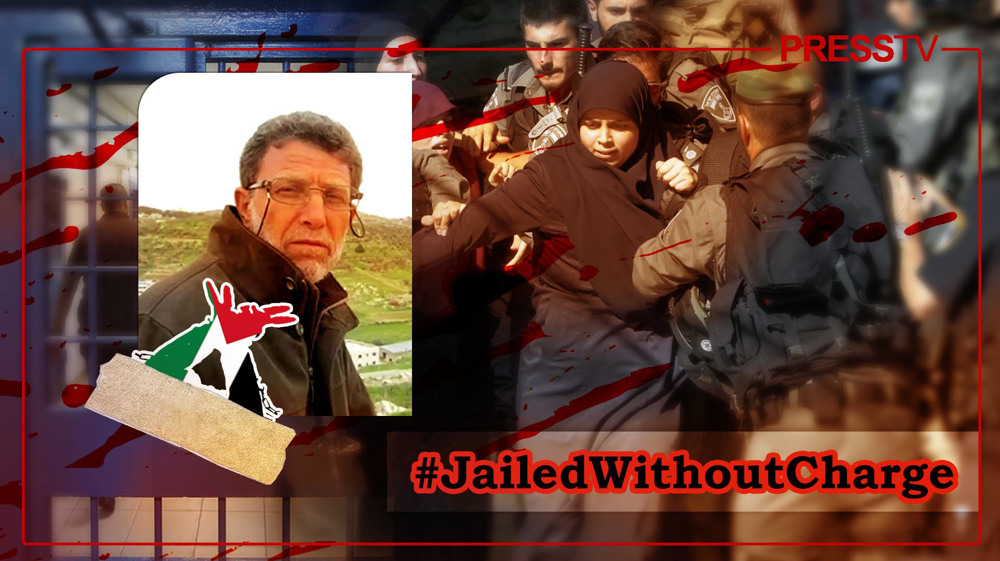
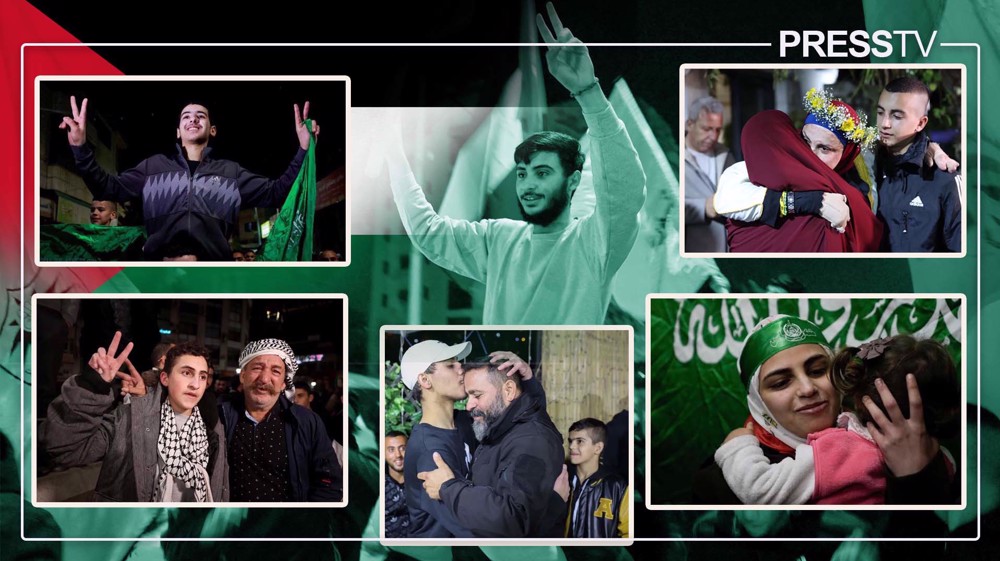
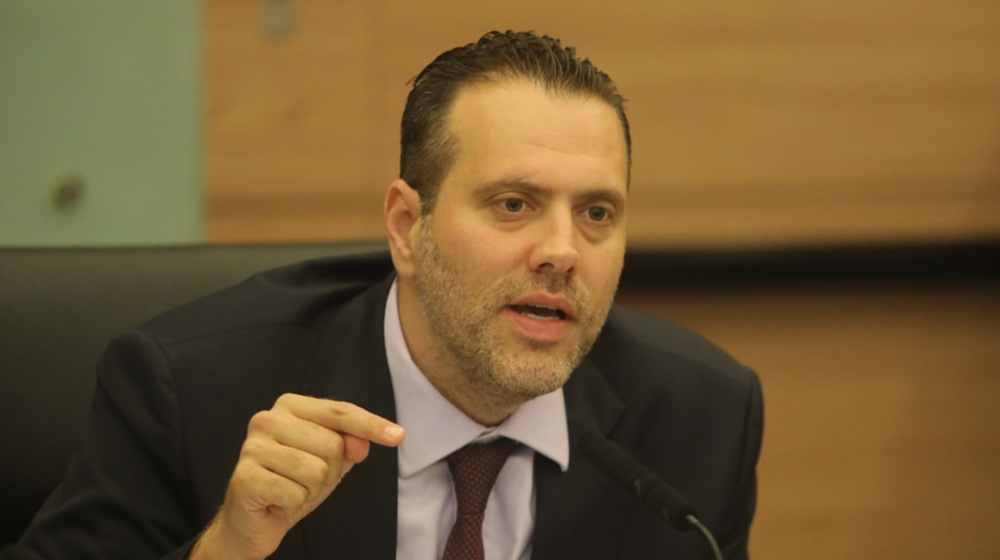

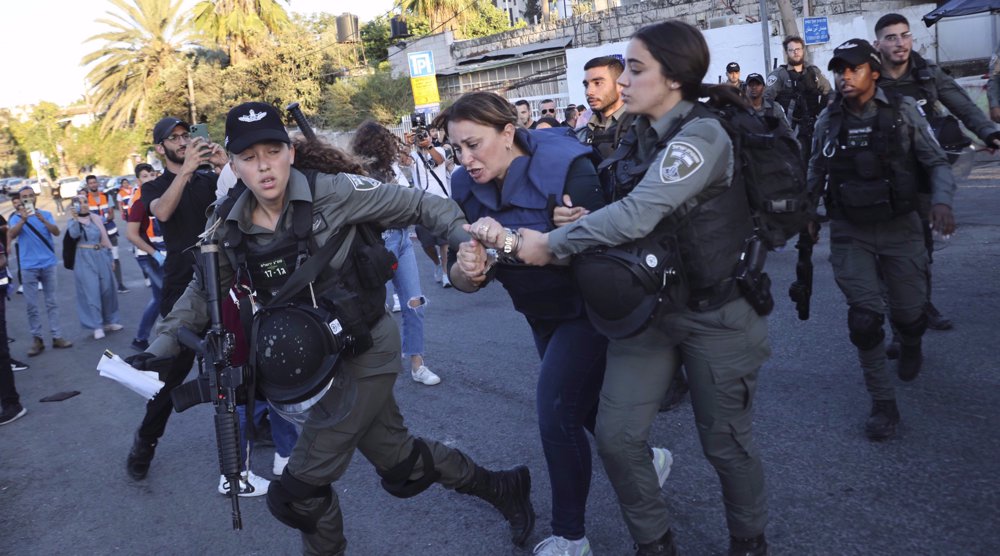



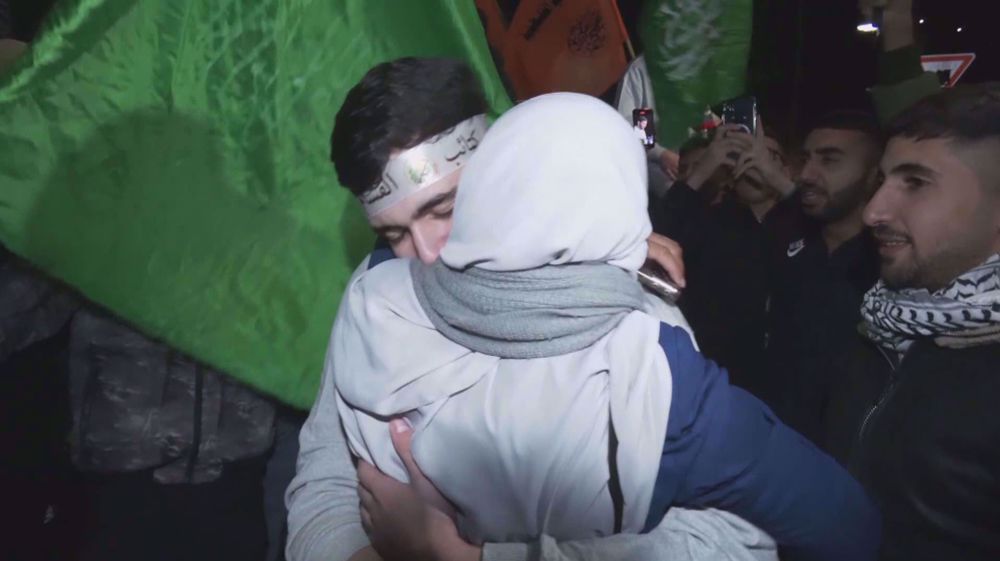
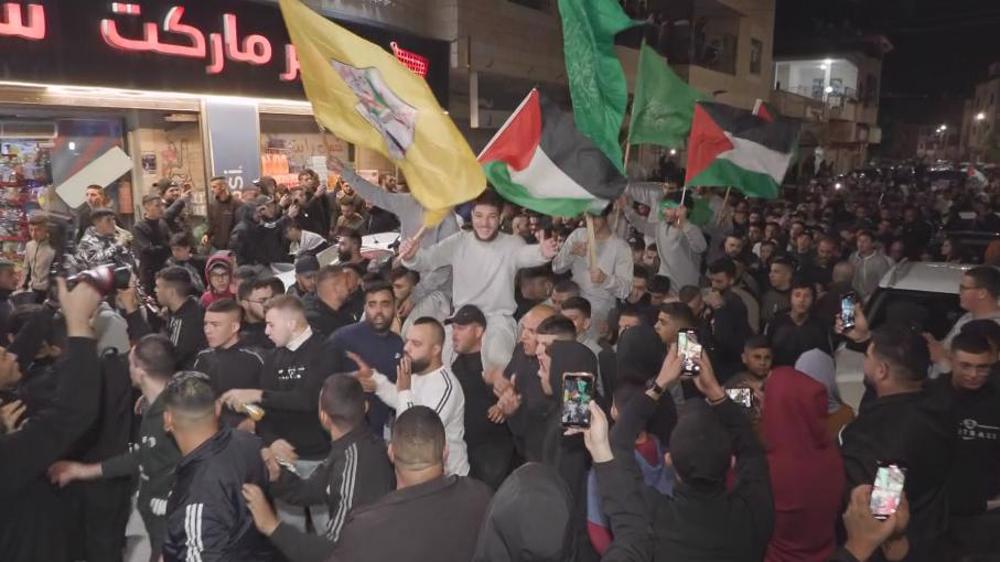
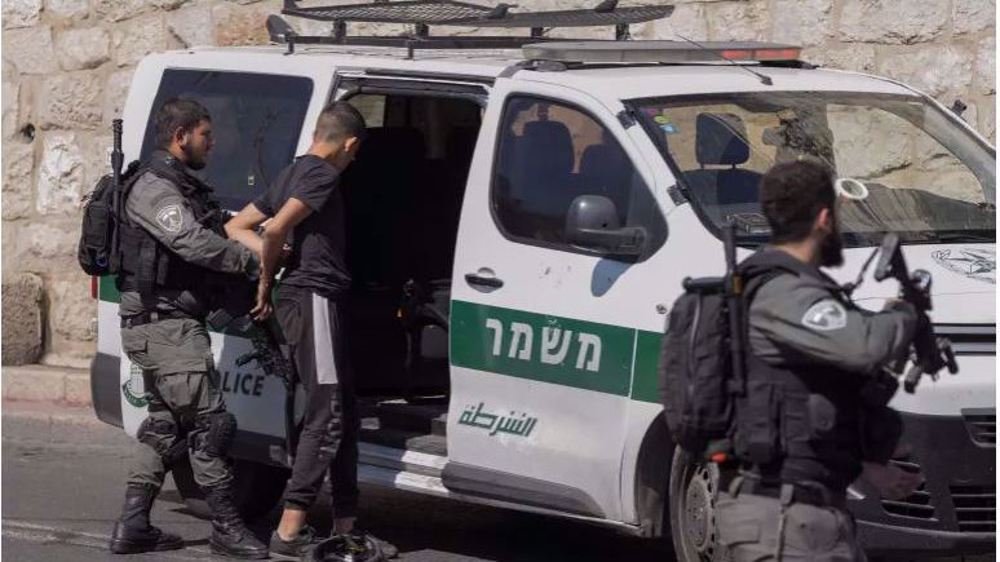
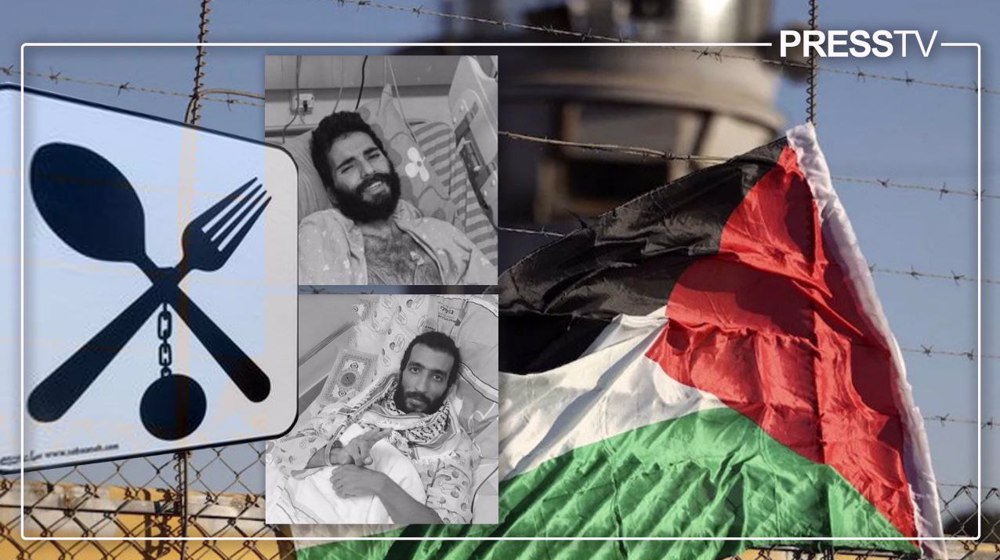
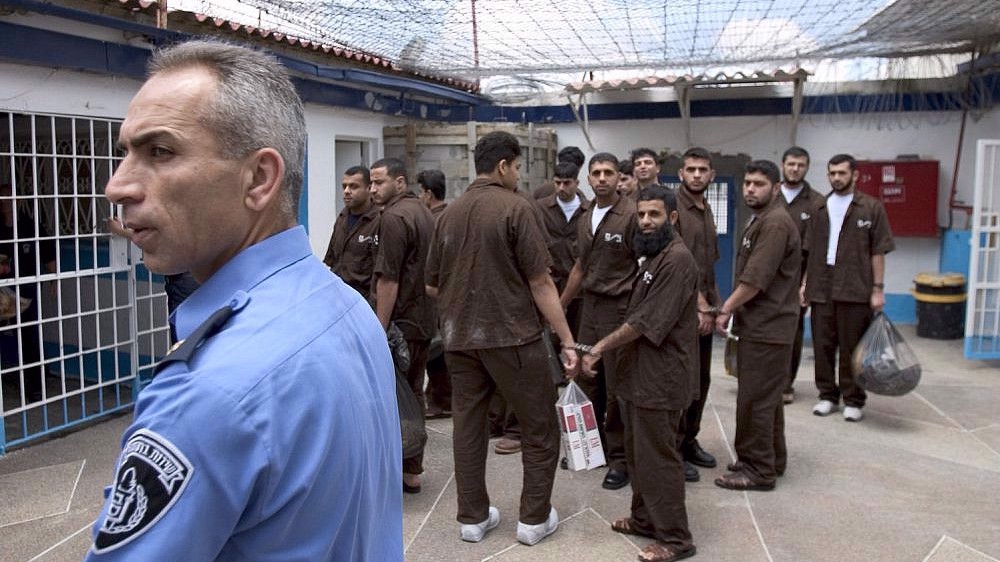

 This makes it easy to access the Press TV website
This makes it easy to access the Press TV website